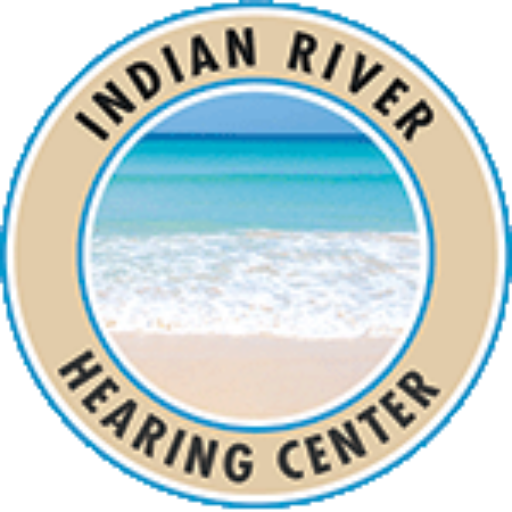Tips for Managing Hearing Aids During Fall Activities
Fall often brings cooler air, shifting weather and changes in how we spend

By: admin | August 21, 2025
Summer activities can be surprisingly hard on your hearing, even when you’re just trying to have fun. You might not think twice about spending the afternoon on a friend’s boat or cheering at your kid’s baseball game, but these activities often involve more noise exposure than you realize. The boat’s engine runs constantly, the crowd gets loud during exciting plays and suddenly you’ve spent hours in environments that are louder than your typical workday. Add in things like outdoor concerts, fireworks displays or even lawn mowing in the heat and summer can actually be one of the noisiest times of the year for your ears.
What makes this tricky is that you don’t want to miss out on the fun parts of summer just because you’re worried about your hearing. Nobody wants to be the person who skips the lake trip or sits in the car during fireworks. The good news is that protecting your hearing doesn’t mean avoiding everything you enjoy about warm weather. A little planning can help you enjoy all your favorite summer activities without wondering later if you should have been more careful.
Summer brings many outdoor activities that can impact your hearing in different ways. Loud noises from fireworks, outdoor concerts and engines on boats or jet skis can cause strain or damage to your ears, especially with prolonged or repeated exposure. Even short bursts of very loud sounds have the potential to affect hearing health.
Water activities also introduce moisture into the ear, which can lead to irritation or infections like swimmer’s ear. Physical injuries from falls, collisions or impacts during sports can damage the sensitive parts of the ear or head, sometimes causing sudden hearing loss or ringing. Being aware of these risks helps you understand how summer fun can affect your hearing in unexpected ways.
Outdoor activities in summer often expose you to louder sounds than you might expect. Fireworks, lawn mowers and power tools used for yard work are common sources of high sound levels. Sporting events like baseball games or car races can be especially noisy, with large crowds and amplified music adding to the volume. Even a single loud burst, like an air horn or whistle, can reach levels that may harm your ears. Outdoor music concerts and nearby construction sites are other situations where noise can exceed safe limits, particularly if you are close to the source or exposed for a long time.
Crowd noise at sporting events can be intense, with cheering fans, whistles and loudspeakers creating a continuous environment of strong sound. This exposure can leave your ears feeling tired or cause ringing afterward, which signals your ears were under strain. Repeated exposure without protection increases the risk of hearing loss over time. Knowing which activities involve higher noise levels helps you understand when your ears may be at risk during summer fun.
Here are some common summer activities and typical volume levels you might encounter:
Sudden loud sounds like air horns, whistles or fireworks at games and competitions can be harsh on your ears. These noises often happen without warning and have the potential to cause hearing damage if you are not prepared. Keeping earplugs or earmuffs nearby lets you react quickly when loud sounds start. Sitting farther from speakers or the noisiest areas can also reduce your risk.
Taking breaks from noisy environments during summer sports is just as important as protecting your ears when the sounds begin. Like muscles needing rest after exercise, your ears need quiet time to recover from loud noise exposure. If you notice ringing or muffled sounds, it is a sign your ears may need a break.
Stepping away to a quieter spot for a few minutes helps lower the risk of hearing damage and gives your ears time to rest. Being mindful of these signs and taking regular breaks supports your hearing health during all the excitement of summer events.
Water activities like swimming, surfing and playing in the pool are popular ways to enjoy summer, but they can also affect your ear health. When water gets trapped in your ears, it creates a warm and moist environment where bacteria can grow. This can lead to ear infections or discomfort if not managed properly. It is important to gently dry your ears with a towel and tilt your head to help water drain out after being in the water.
Swimming and water sports also bring risks like exposure to bacteria or chemicals found in pools, lakes or oceans. Accidental bumps or injuries from water equipment are another concern. Watching for signs like pain, itching or fluid draining from the ear can help you catch infections early. Taking simple precautions after water exposure helps keep your ears healthy and comfortable throughout summer.
Using swim caps or earplugs designed for water activities can reduce the chance of water getting trapped. Regularly drying your ears after swimming and paying attention to any unusual symptoms are key steps in protecting your ear health. These habits let you enjoy water sports safely without putting your ears at risk.
After swimming, it is important to keep your ears dry and clean to prevent infections and other issues. Gently tilt your head to each side to help water drain out. Use a soft towel to dry the outer ear, but avoid pushing anything inside the ear canal. Let your ears air-dry completely before putting on headphones or hearing devices. If you notice pain, itching or fluid coming from your ear after swimming, it may be a sign you need to pay extra attention to ear care.
Simple habits can help prevent ear infections during summer activities, especially when you spend time in the water or sweat a lot. Consider these tips:
Summer is a great time to get outside and enjoy activities like biking, hiking or playing sports. But with all that fun it is important to stay mindful of injury risks especially head injuries. A bump or hit to the head can sometimes lead to issues like tinnitus which is a ringing or buzzing in your ears. Even mild injuries might cause temporary dizziness or changes in hearing that you might not immediately notice. Taking precautions like wearing helmets and protective gear can help reduce the chance of these problems.
Head injuries do not just affect your ears they can impact your balance and overall hearing health. Protecting yourself during activities lowers the risk of long-term effects that might affect your day-to-day life. Staying aware and prepared means you can enjoy summer fun without having to worry about unexpected injuries slowing you down.
Wearing protective gear for your ears during sports is important because it helps lower the risk of hearing loss and injuries. Sports like baseball, soccer or swimming can expose your ears to loud noises, sudden impacts or water that may cause problems if left unprotected.
Using earplugs, earmuffs or swim caps designed for specific activities can make a big difference in keeping your ears safe. These simple tools help block out harmful sounds and prevent water or debris from entering the ear canal during play.
Paying attention to changes in your hearing after summer activities is important for protecting your ear health. Early signs can help you address problems before they get worse.
Some signs of hearing loss may include needing to turn up the volume on the TV, asking people to repeat themselves or having trouble understanding conversations in noisy places. You might also notice ringing in your ears or a feeling that sounds are muffled. These changes can affect how well you enjoy social events and daily activities. Recognizing these signs early allows you to take steps to protect your hearing and maintain a good quality of life.
Building simple daily habits can help protect your hearing during the summer months. Wearing ear protection at loud events, drying your ears after swimming and keeping headphones at a safe volume are all practical steps you can take.
These habits are easy to fit into your routine and do not require much effort or special equipment. The benefits include lowering your risk of hearing loss, reducing the chance of ear infections and helping you enjoy activities without discomfort.
Some people may find it inconvenient to remember these habits every day or may feel awkward using earplugs in public. However, making these small changes can help keep your ears healthy through the busy summer season.
Sometimes summer activities can lead to hearing issues that need professional attention. If you notice persistent ringing or buzzing in your ears after exposure to loud noises, difficulty understanding conversations or sudden changes in your hearing, it’s a good idea to see a specialist. These signs might indicate damage that could worsen without proper care. Early evaluation helps catch problems before they become more serious and gives you the chance to protect your hearing going forward.
Other reasons to seek help include ear pain, swelling or discharge after swimming or being in water, as these can signal infections. If you experience dizziness or balance problems along with hearing changes, a specialist can determine the cause and recommend appropriate treatment. Getting timely support means you can enjoy the rest of your summer activities while keeping your hearing in good shape.
Summer offers many chances to create memories and enjoy time with friends and family. It’s easy to get caught up in the excitement without thinking about how noise and other factors might affect your hearing. Understanding that everyday activities like boating or attending games can add up to significant sound exposure is an important step in protecting your ears. Taking a moment to be aware of these risks helps you stay safe without missing out on what makes summer special.
If you have questions or want to learn more about how to keep your hearing healthy during the busy summer months, help is available. Contact Indian River Hearing Center in Vero Beach, FL at 772-758-0346 for expert guidance and personalized support. With the right information and care, you can enjoy the sounds of summer fully and confidently.
Tags: hearing loss prevention tips, hearing protection products

Fall often brings cooler air, shifting weather and changes in how we spend
By: admin | December 21, 2025

Summer activities can be surprisingly hard on your hearing, even when
By: admin | August 21, 2025

Were you aware that your hearing health can also be greatly impacted by
By: admin | May 16, 2025
